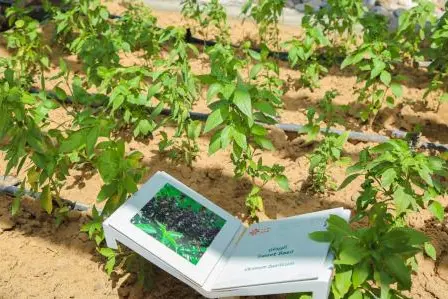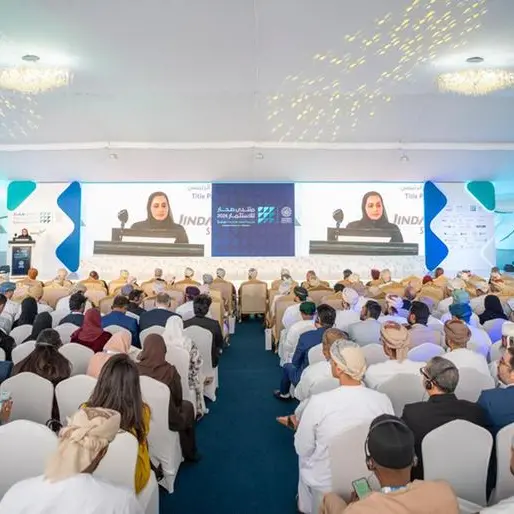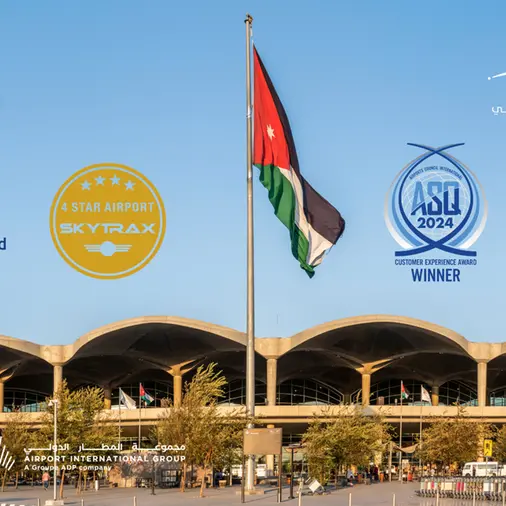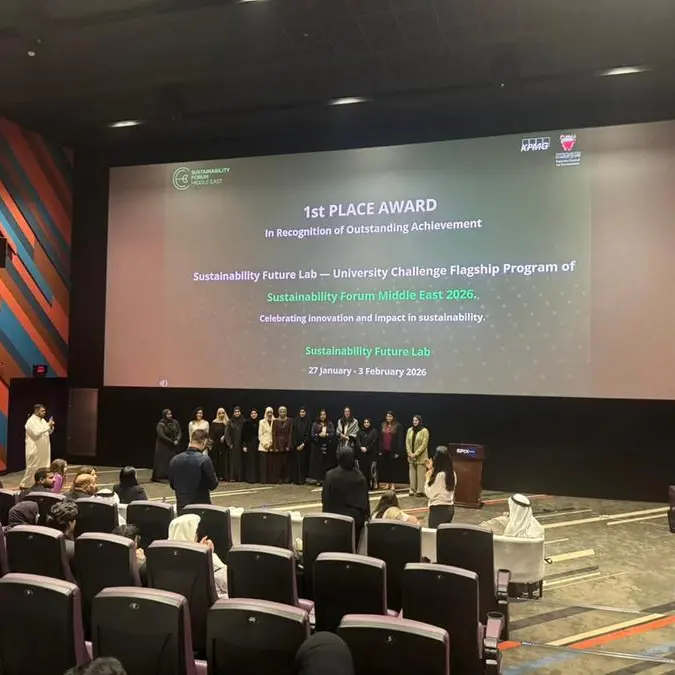PHOTO
Sharjah: The Environment and Protected Areas Authority (EPAA) opened the world’s first Islamic garden five years ago at Sharjah Desert Park. The Islamic Botanical Garden commemorates the occasion when Sharjah was named the Capital of Islamic Culture in 2014. It is a distinctive addition to Sharjah’s tourism sector and schools visit the garden so that students can learn about plants, especially those mentioned in the Holy Quran and the Sunnah.
His Highness Sheikh Dr Sultan bin Mohammed Al Qasimi, Member of the Supreme Council and Ruler of Sharjah, decided to create an Islamic botanical garden in collaboration with UNESCO in 2006; His Highness believes in the importance of connecting religion and science. The vision for the Islamic Botanical Garden is to improve learning and boost awareness about sustainable development, the environment and the importance of preserving Islamic culture.
HE Hana Saif Al Suwaidi, EPAA Chairperson, said “The Islamic Botanical Garden provides visitors with the opportunity to view plants mentioned in the Holy Quran and Sunnah. The trees, shrubs, and herbs are presented in an innovative way with their scientific names in Arabic and English and a list of their medicinal properties and health and nutritional benefits. The garden, which includes a nursery, a restaurant, a classroom and a library, receives a growing number of visitors. Half a million people have visited since it opened in 2014.”
Plants
The Islamic Botanical Garden features 50 plants mentioned in the Holy Quran including tamarisk, Christ’s thorn, palms, Punica granatum (pomegranates), grapes, figs, olives, basil, eucalyptus, ginger, Acacia tortilis, Buxus dioica, Salvadora persica and Lawsonia inermis. There are also 42 plants mentioned in the Sunnah, including Nigella sativa (black cumin), saffron, aloe vera and mustard. The Garden is missing only two plants that are mentioned in the Holy Quran: Al Zaqqum, a tree that grows in Hell; and Al Gharqad (Nitraria), ‘the tree of the Jews’, which grows only in Palestine.
The Islamic Botanical Garden also offers visitors a chance to see the rare agarwood tree from which the finest aromatic ingredients are extracted and the eucalyptus tree.
Smart screens provide information about the plants’ names, benefits and uses.
The Islamic Botanical Garden’s aims
The Islamic Botanical Garden aims to encourage reflection while emphasising the importance of the link between Islam and preserving the environment. It introduces non-Muslims to the Islamic perspective of living creatures and provides information about plants’ nutritional and therapeutic benefits.
People of determination can access the Garden’s buildings, garden and pathways easily. The café serves juices and food made with ingredients from the Garden’s plants and there is a classroom and a library for visitors of all ages, with books and references about the plants mentioned in the Holy Quran and the Sunnah and about Prophetic Medicine.
To improve visibility, the plants in the Islamic Botanical Garden are arranged by height. The Garden features trees including Vachellia oerfota, banana, eucalyptus, Christ’s thorn, Citrus medica, agarwood, figs, Lawsonia inermis, costus, Nitraria (Gharqad), olives, palms, tamarisk and Acacia tortilis. Shrubs include Cymbopogon, Cedrus, Salvadora persica (Arak), Acorus calamus, Buxus dioica, turmeric, Euphorbia pithyusa, astragalus, Cyperus papyrus and Punica granatum (pomegranates). The herb section includes Neurada precumbens, cumin, Armenian cucumber, garlic, ginger, grapes, pumpkin, leek, lentil, mustard plant, onions, aloe vera, barley, chard, Citrullus colocynthis and Nigella sativa (black cumin).
“It took expert botanists three years to gather the plants in collaboration with UNESCO. The scientific research team procured seasonal plants such as Euphorbia pithyusa and Senna alexandrina from nearby regions, and other plants were procured as either plants or seeds from the countries in which they grow. We used modern technology to overcome the greatest challenge and create an environment suitable for all the plants,” Mrs Al Suwaidi explained.
-Ends-
© Press Release 2019Disclaimer: The contents of this press release was provided from an external third party provider. This website is not responsible for, and does not control, such external content. This content is provided on an “as is” and “as available” basis and has not been edited in any way. Neither this website nor our affiliates guarantee the accuracy of or endorse the views or opinions expressed in this press release.
The press release is provided for informational purposes only. The content does not provide tax, legal or investment advice or opinion regarding the suitability, value or profitability of any particular security, portfolio or investment strategy. Neither this website nor our affiliates shall be liable for any errors or inaccuracies in the content, or for any actions taken by you in reliance thereon. You expressly agree that your use of the information within this article is at your sole risk.
To the fullest extent permitted by applicable law, this website, its parent company, its subsidiaries, its affiliates and the respective shareholders, directors, officers, employees, agents, advertisers, content providers and licensors will not be liable (jointly or severally) to you for any direct, indirect, consequential, special, incidental, punitive or exemplary damages, including without limitation, lost profits, lost savings and lost revenues, whether in negligence, tort, contract or any other theory of liability, even if the parties have been advised of the possibility or could have foreseen any such damages.




















